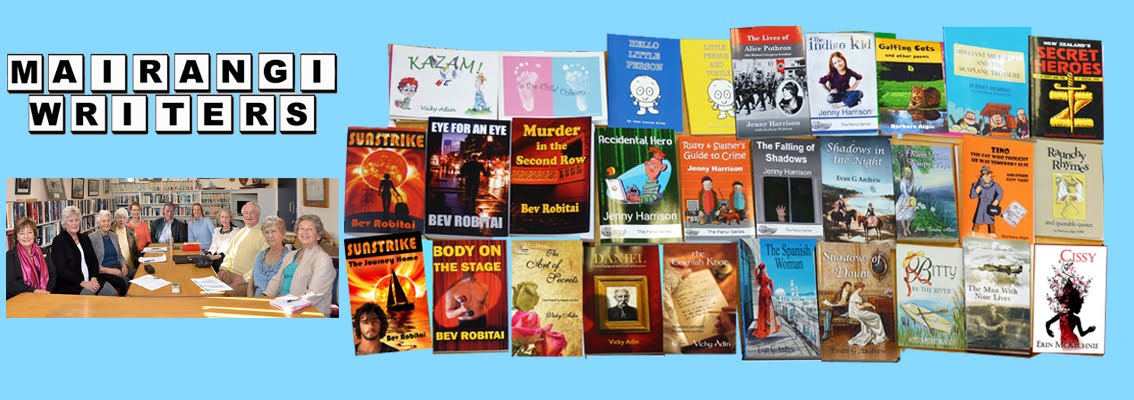I thoroughly enjoyed Bev Robitai’s blog on beta readers; actually I
enjoyed Jenny Harrison’s earlier blog on cleaning up writing as well. Unappealing
but necessary chores; all in pursuit of
perfect prose.
I am confronted with the next phase of this process of bringing a work
of art to print – writing a synopsis for my book. Now I wrote the jolly thing –
you’d think I know what it’s about, wouldn’t you? But – compelled to sit and
condense my 88,000 odd (hopefully not too odd) worded manuscript into a tightly
expressed but fully explanatory summary, my fingers are struck numb.
This synopsis cannot be a titillating brief introduction of the main
characters’ problems ending with the question ‘but can she pull it off’ or
something similar. That’s what goes on the back of the book. Apparently editors
don’t like being left to guess what happens, but if I tell them what happens
they’ll know everything and then they won’t want or need to read it.
However, Stewart Ferris says
‘leave out all unnecessary detail and tantalise the editor with
questions and hints that make them want to read the whole book to find out
more.’ That’s not what the others said. He also, along with others, advises
writers to have a ‘hook’ to attract editors.
Which of the scintillating moments in the book should I choose as the
hook? It’s akin to feeding one child and putting the others out in the cold.
Some authorities on this vexing problem of writing a synopsis assert
that one paragraph per chapter is adequate, whilst others are equally emphatic
that editors will not want anything that long. Apparently keeping a notebook
beside the computer and summarising each chapter as you go is really helpful in
this regard, but it’s too late – I’d finished the thing before I found that bit
out.
I must be concise, succinct, pithy and serious. Save the jokes for the
covering letter – another problem. Light
touches of humour are acceptable in the letter, jokes are not. Put the jokes in
the book. Who to believe?
In my synopsis I must clarify which genre I’m writing in. I don’t know.
There are other books of a similar type already published. Some of them are
non-fiction so they end up genre-less, others have been variously catalogued as
crime, pastoral, sociological thrillers. In desperation I asked for the opinion
of a number of my learned friends who are familiar with the content of the
book, but unfortunately we could not reach a consensus.
So this is it. It’s a good book and you should read it.
Erin McKechnie
(Editor's note - Erin's next puzzle will be finding the perfect title!)

I've just finished reading Erin's draft book as a beta reader so now I'm experiencing the other side of the equation from my post last week. It's an honour and a responsibility - and happily in this case a pleasure as well. Once she chooses a title I'll be sure to recommend it!
ReplyDelete